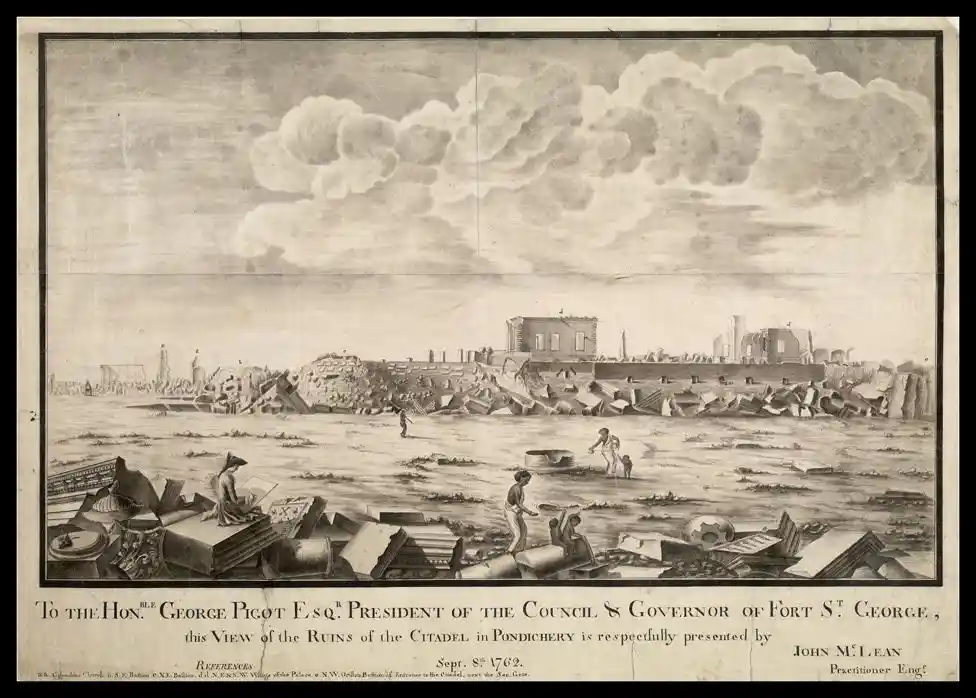French? British? French?
The British and the French trading enterprises had been embroiled in a long-standing conflict for influence on the Indian Subcontinent. With the Seven Years' War, all hell broke loose in Europe, which had a ripple effect in the form of intensified competition in British and French foreign domains. The conflict that spilt into India came to be known as the Third Carnatic War.

Ruins of Pondicherry post the Third Carnatic War
To put a brake on British Expansion in India, the Frenchmen decided to align themselves with the British Empire. Although the war spanned from South India to Bengal, it was the decisive victories scored by the British in the South which turned the tide overwhelmingly in their favour. Though the French were successful at taking control of Cuddalore, they were fended off in Madras by the British. Under British Commander Sir Eyre Coote, they overpowered Comte de Lally-led Frenchmen at the Battle of Wandiwash in 1760. The Siege of Pondicherry began in September 1760 under Robert Clive. The British land and naval forces surrounded the French Capital and gradually overran the French army protecting the colonial outpost. The French defeat could be attributed to low supplies and ammunition. However, as per Sir John William Fortescue, French Commander Comte de Lally's authority was also undermined by the "fatal tendency of jealousy, distrust, and disunion." The French empire as a whole was particularly susceptible to corruption and mismanagement, which resulted in their downfall.
The Treaty of Paris (1763) put an end to the war; as a part of the agreement, Chandernagore and Pondichery went back under French control. Moreover, the French were allowed to set up trading posts in India, on the condition that French traders would be forbidden from administering them. The French also had to extend their support to British client governments. This clause, in particular, makes the entire episode a watershed event in the Indian context as it effectively laid to rest aany French ambitions of commanding Indian territory. It is also significant in the sense that it made the British the dominant foreign power in India and paved the way for further colonization by them.


